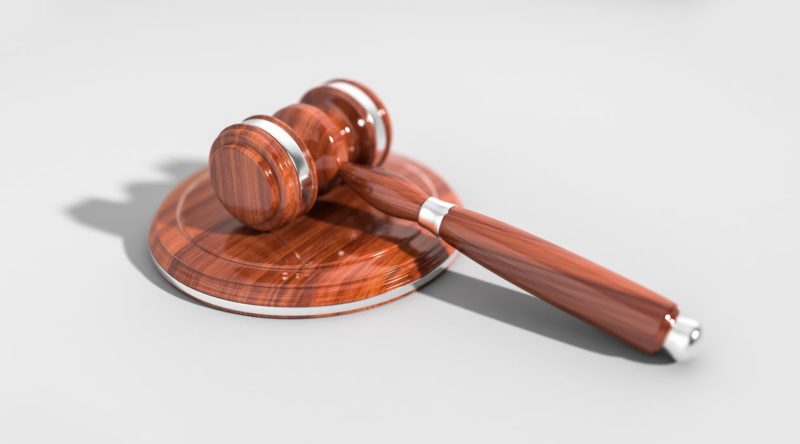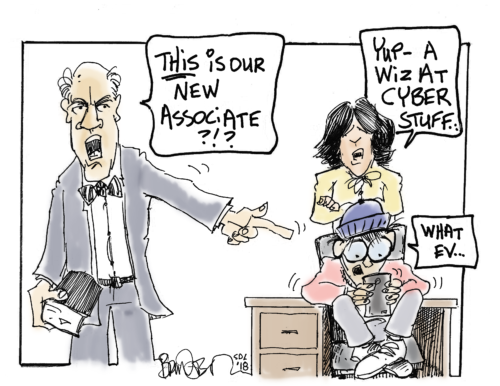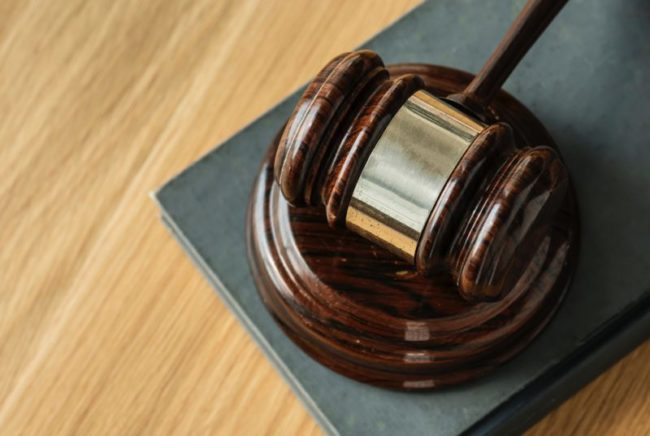By Edward McIntyre
A good friend asked me to lecture to her business ethics class at San Diego State University, mostly juniors and seniors. During class, she would mark the 54 students on “participation,” so I quickly scrapped the “lecture” idea. Instead, the class at large — from scratch and without advance acquaintance with our Rules of Professional Conduct — would develop a set of ethics rules for a profession. Lawyers. In little more than an hour.
We started with some context: what lawyers do. The assumptions were: lawyers represent clients before tribunals; they counsel clients; they deal with non-client third parties on clients’ behalf.
With only this brief context — and perhaps material they had read for the course, and their own experience and ethical norms — the students addressed the question: What do you expect of your lawyer, focusing only on ethical standards?
First, Confidentiality.
This was the immediate and spontaneous response to the question. All who contributed to the discussion thought confidentiality was a key ethical requirement. What you say to your lawyer had to stay with that lawyer. Much later in the class, when we discussed the confidentiality mandates and exceptions in Business and Professions Code Section 6068(e) and ABA Model Rule 1.6, reactions were mixed. More about that below.
Next, Fair Fee.
I was surprised that this was the second ethical norm the class developed. Not only did participants think that fair fees were an important ethical component of the lawyer-client relationship, but also that the lawyer had to be efficient in delivering services — a corollary to a fair fee.
Loyalty.
The class wanted a lawyer who would represent their interests, no matter what conduct was involved, and not to judge the client. Rather, they wanted a lawyer who was devoted solely to the client’s best interest. They also wanted a lawyer who could focus on what was best for the client, no matter who the client was.
Conflict-Free Representation.
Another element of the relationship important to the class was that the representation be without conflict of interest — either with some other client or with the lawyer’s own interests.
Candor to the Client.
All who chimed in saw candor as important, as well as communication from their lawyer. In this context, they not only did not want a lawyer to misrepresent facts to them, but they also wanted a lawyer who was not afraid to deliver, honestly, uncomfortable or bad news.
Candor to the Tribunal.
A few saw this norm as important for the judicial system to function, but they emphasized that such candor had to be subordinate to the obligations of confidentiality and loyalty to the client. Confidentiality and loyalty remained the predominate ethical norms.
Competence.
The class thought competence was not just an important behavioral aspect of a lawyer’s representation, but also a lawyer’s ethical obligation. As the discussion of this norm continued, diligence and communication became part of the element of competence.
Ethical Reputation.
Several in the class said, and the balance appeared to agree, that a lawyer had an ethical obligation to maintain her or his reputation as an ethical lawyer in the community. As one student offered: “I don’t want to hire a lawyer and find out two months later that he’s been arrested for drug dealing or disciplined for misconduct. I want someone who’s known to be ethical.”
Confidentiality Revisited.
Toward the end of the class, I shared with them, Section 6068(e)(1)’s strict mandate — at every peril to herself or himself — and the permissive exception of Section 6068(e)(2). The reaction was mixed whether a lawyer should disclose a client confidence even to prevent the death or serious bodily injury of a third party, using a variant of the Tarasoff facts to provoke the discussion.
We then looked at ABA Model Rule 1.6, which has a permissive exception to confidentiality to prevent serious financial harm to another when the client is using the lawyer’s services to cause that harm. We used the Enron case as an example.1 Most of the class felt no disclosure was the proper ethical norm when only financial harm was at stake.
One interesting exception: a student who thought there should be no exception with the Tarasoff facts — threatened death of a girlfriend — saw a basis for the ABA Model Rule exception when the serious financial harm would affect many people. We agreed it would be better to be his broker than his girlfriend!
Sex With Clients.
As promised at the outset, we had the conversation first and saved sex until last. The scenario was a 38-year-old lawyer who agrees to represent a 19-year-old “Dreamer” college student pro bono, and says he has creative strategies to deal with DACA; over time he invites her to dinner, the theater and eventually his Mission Hills condo where they engage in consensual sex.
The overwhelming majority of the class thought this was ethically wrong.2 As one student put it: “If he wants to continue the relationship, he should get her another lawyer who can represent her.”
Unfortunately, time came for class to end. The experience, however — a group of smart, articulate, thoughtful college students — sheds a bright light on the ethical standards our clients and the public in general may expect from us.
Edward McIntyre (edmcintyre@ethicsguru.law) is an attorney at law and co-editor of San Diego Lawyer.
This article was originally published in the May/June 2018 issue of
San Diego Lawyer Read More









